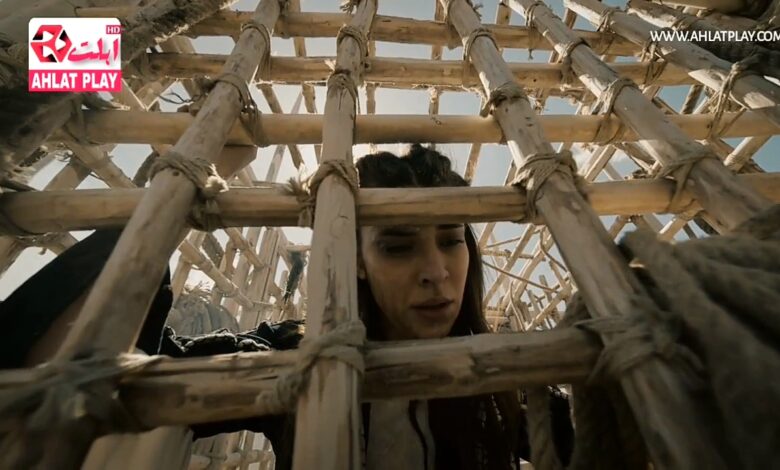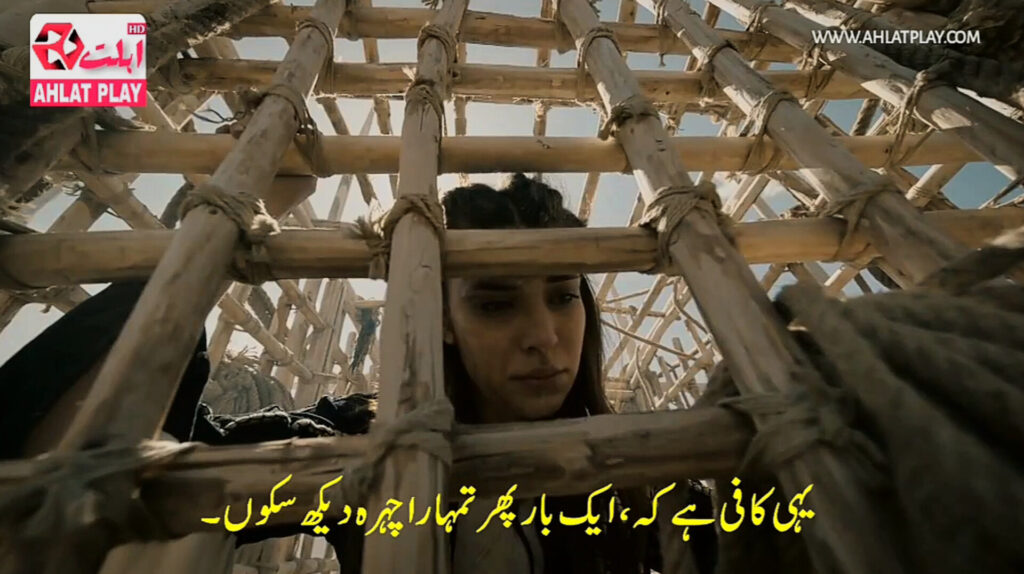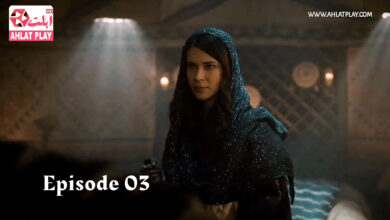Mevlana Celaladdin Rumi Season 3 Episode 2 With Urdu Subtitles

Mevlana Celaladdin Rumi Season 3, Episode 2: A Detailed Overview with Urdu Subtitles
The Turkish drama series Mevlana Celaladdin Rumi has captivated audiences around the world with its historical richness, philosophical depth, and unforgettable characters. In Season 3, Episode 2, the show delves deeper into the life of the renowned poet, philosopher, and spiritual leader, Mevlana Jalaluddin Rumi, showcasing the struggles and events that ultimately led to the development of his iconic Sufi teachings. This episode stands out as a turning point in the story, with significant developments taking place in the lives of key characters.
Here’s a detailed look at the key events from Episode 2 of Season 3 of Mevlana Celaladdin Rumi, including key plot points and the introduction of pivotal characters.
1. Afsoon Kills Noyan: A Dark Twist
One of the most shocking moments in this episode is the brutal killing of Noyan by Afsoon. Noyan, a key antagonist who has been a thorn in the side of the protagonists, was initially seen as an influential figure in the story. His violent and ruthless nature caused much havoc, not just within the storyline but also for the characters who were trying to maintain peace.
Afsoon, who had been playing a double role, masking her true intentions for a while, reveals her darker side in this episode. She kills Noyan as part of a larger plot, which is yet to be fully revealed. This moment serves to not only remove a major threat from the storyline but also signifies a shift in power dynamics. Afsoon’s true nature comes to light, adding complexity to her character and leaving viewers on edge, wondering about her next move.

2. Mevlana’s Backentry: A Glimpse into Spiritual Awakening
The spiritual journey of Mevlana Jalaluddin Rumi is at the heart of the series, and this episode emphasizes his growing inner transformation. After experiencing significant personal loss and turmoil, Mevlana begins to delve deeper into his spiritual practices. His backentry, or return to his contemplative practices, marks a crucial moment in his path to enlightenment. It is during this phase that he begins to understand the deeper truths of life and the nature of the divine.
The backentry scene in this episode is beautifully portrayed, with Mevlana reflecting on the teachings of his father and the influence of his spiritual mentors. His mind is gradually being opened to the broader teachings of Sufism, and this episode signifies the beginning of his deep connection with the divine. The depiction of Mevlana’s spiritual awakening is poignant and showcases his growing understanding of love, compassion, and the need to transcend materialism.
3. The Interaction Between Alladin and Scycoman
Another key aspect of this episode is the interaction between Alladin (Mevlana’s son) and Scycoman, a significant character who plays a role in shaping Alladin’s views. Alladin, who is still learning from his father’s wisdom, begins to forge his own path in this episode. His encounter with Scycoman is filled with tension and philosophical musings.
Scycoman, a character known for his intellect and sometimes harsh approach to life, challenges Alladin’s worldview. This dialogue between the two characters represents the contrast between Alladin’s youthful idealism and Scycoman’s more cynical views. Their interaction is a pivotal moment for Alladin as he begins to understand that life’s complexities go beyond simple answers, and that true wisdom often involves embracing paradoxes.
The philosophical discourse between them is layered with deep insights into the nature of existence, divine love, and personal growth. Alladin’s growth as a person and a spiritual figure is evident in his exchange with Scycoman, setting the stage for future philosophical developments in the series.
4. The Birth of Mevlana’s Child: A New Beginning
In a deeply emotional and significant scene, Mevlana’s wife, Gawhar, gives birth to their child. This moment symbolizes a new beginning for the Rumi family. The birth of a child is often seen as a metaphor for renewal and rebirth, and in the context of the show, it serves as a moment of hope amidst the turbulence that the characters are facing.
This event also brings a sense of unity and joy to the family, reminding the characters, especially Mevlana, of the importance of love, family, and life’s cycles. The birth of a child in the narrative also marks a turning point for Mevlana’s personal and spiritual journey, as he contemplates his responsibilities as a father and a spiritual guide.
This beautiful moment of familial connection is essential for the emotional resonance of the episode, and it serves to remind the audience of the human side of Mevlana, a man who is also a father and a husband, amidst his larger spiritual and philosophical pursuits.
5. The Entry of Shams-e-Tabrizi: A Mysterious Figure
The most pivotal moment in Episode 2 of Season 3 is the entry of Shams-e-Tabrizi, a figure who will go on to change the course of Mevlana’s life and teachings forever. Shams is an enigmatic and charismatic Sufi mystic whose presence profoundly impacts Mevlana, transforming his approach to spirituality. Shams’ philosophy is radical, and his unconventional methods challenge the traditional norms of Sufism that Mevlana had been following.
The character of Shams is portrayed as someone who not only challenges Mevlana’s understanding of love and devotion but also ignites a deep internal transformation within him. His teachings go beyond the conventional, urging individuals to look beyond the superficial and dive into the depths of their inner selves. Shams’ arrival is the catalyst for Mevlana’s ultimate realization of the importance of divine love, which becomes the foundation for his future poetic and philosophical works.
In this episode, Shams is introduced in a mysterious and somewhat magical way. His first appearance is accompanied by a sense of awe and intrigue, leaving the audience captivated by his aura and presence. This moment foreshadows the significant role Shams will play in Mevlana’s life and in the overall development of the series.
Conclusion: A Significant Turning Point in the Series
Season 3, Episode 2 of Mevlana Celaladdin Rumi is rich with dramatic moments that propel the storyline forward while deepening the philosophical and spiritual themes of the series. The episode focuses on key moments such as Afsoon’s betrayal and Noyan’s death, Mevlana’s growing spiritual transformation, the philosophical exchange between Alladin and Scycoman, the birth of Mevlana’s child, and the mysterious entrance of Shams-e-Tabrizi. These developments not only drive the plot forward but also enhance the philosophical undertones that the series is known for.
For viewers familiar with Rumi’s work, the episode beautifully sets the stage for the teachings that will later define his life’s work. The interactions between characters and the exploration of spiritual themes create a deep emotional and intellectual connection for the audience, making this episode a truly significant one in the series.
As we move forward in the series, it will be exciting to see how the characters evolve and how the timeless wisdom of Mevlana continues to influence those around him, bringing love, peace, and spiritual enlightenment to the world.
Urdu Subtitles: Key Highlights
- افسون کا نویان کو مارنا: افسون کی حقیقت سامنے آتی ہے اور وہ نویان کو قتل کر دیتی ہے، جس سے کہانی میں ایک نیا موڑ آتا ہے۔
- ملاں کی روحانی واپسی: ملاں کی روحانی ترقی کی ابتدا ہوتی ہے، جب وہ اپنے اندر کی حقیقت کو دریافت کرتے ہیں۔
- علاءالدین اور سائیکومان کا مکالمہ: علاءالدین کی فکر اور سائیکومان کی تنقید کے درمیان ایک اہم بات چیت ہوتی ہے، جو اس کی ذاتی ترقی کو چیلنج کرتی ہے۔
- ملاں کے بچے کی پیدائش: ملاں کے بچے کی پیدائش ایک نیا آغاز ہے، جو خاندان میں خوشی اور امید کا پیغام دیتی ہے۔
- شمس تبریزی کا داخلہ: شمس تبریزی کا غمگین اور پراسرار انداز میں داخلہ ملاں کی روحانیت میں تبدیلی لاتا ہے، جو کہ ان کے شعور کا انقلاب ثابت ہوتا ہے۔
This episode is an emotional rollercoaster that sets the stage for future episodes filled with intense philosophical conversations and profound spiritual insights.



